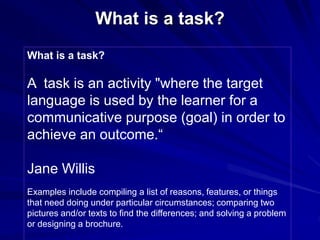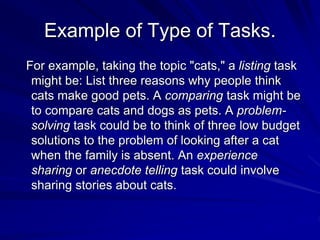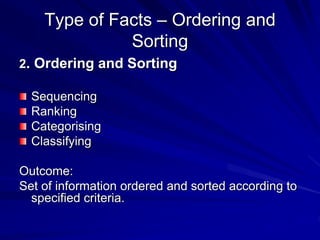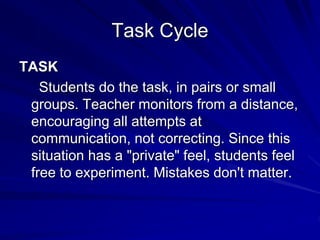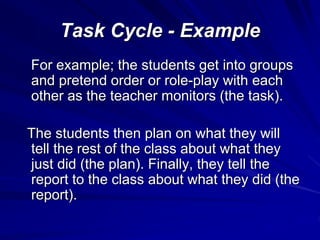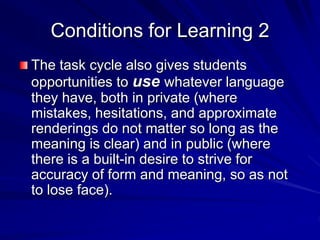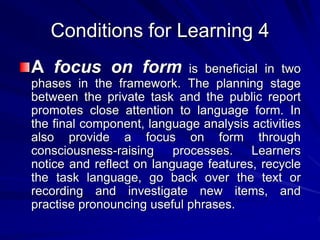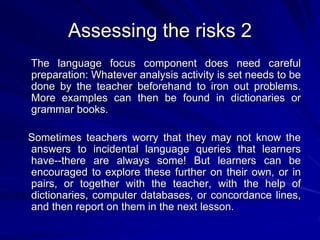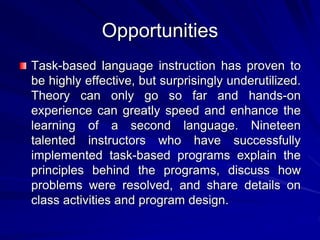Task-based learning is a language teaching method where students complete communicative tasks using the target language. It focuses on meaningful language use rather than rote learning of grammar rules. A task has three stages: pre-task introduction, task completion in groups or pairs, and post-task reporting. This allows students to experiment, focus on communication over accuracy, and then improve their language for reporting. The method is effective at intermediate levels as it motivates students and provides opportunities for negotiated interaction, language recycling, and a focus on form.
